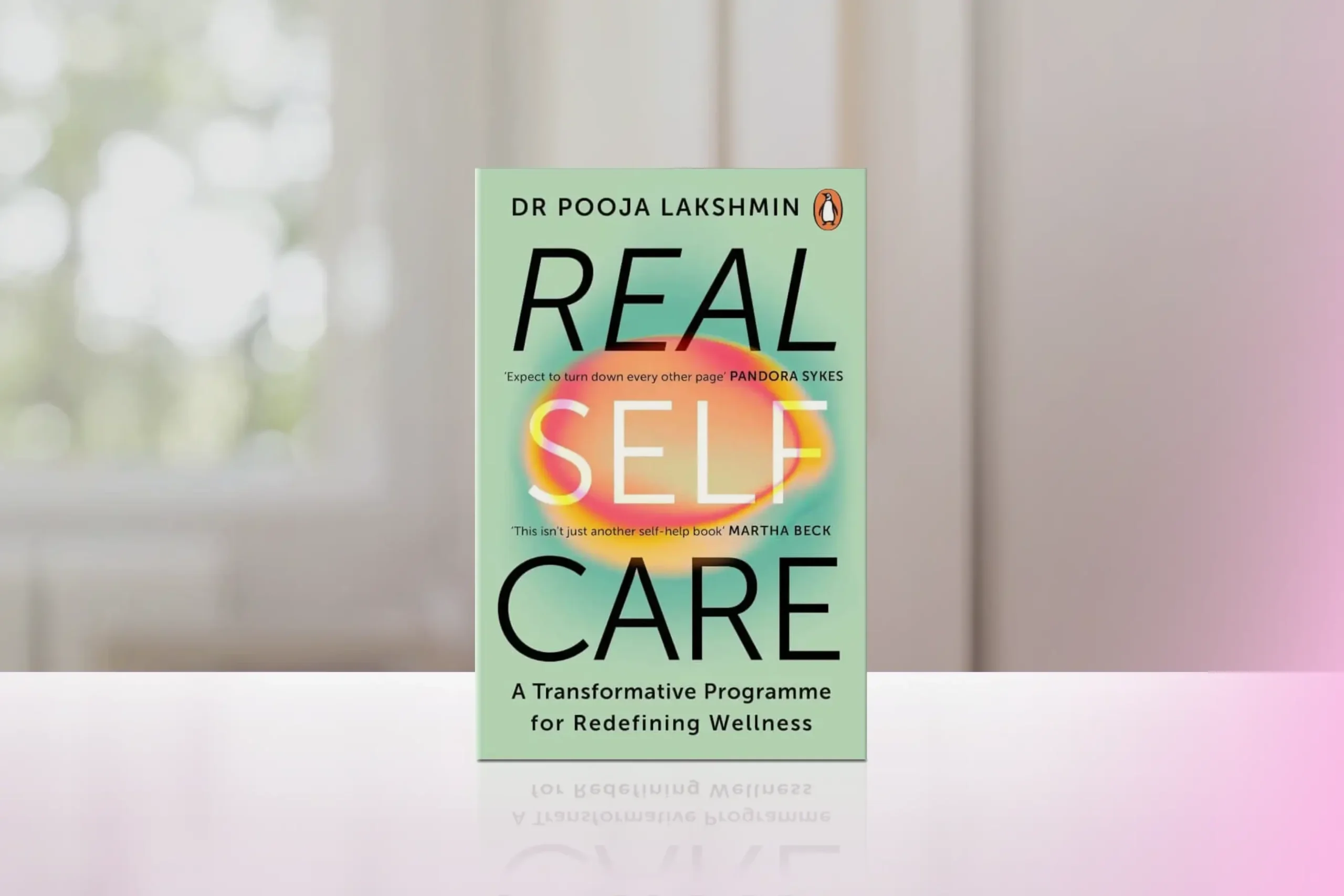The relationship between what we eat and how we feel has never been clearer. Recent research from the International Journal of Molecular Sciences shows that dietary choices can impact mental health by up to 60%, with nutrient-rich diets correlating to a 35% reduction in depression risk. Meanwhile, the World Health Organization reports that implementing proper nutrition strategies can improve mood stability by 45% and reduce anxiety symptoms by 40%.
Drawing inspiration from “Eat, Move, Sleep” by Tom Rath and “The Blue Zones” by Dan Buettner, this guide explores the vital connection between nutrition and mental wellbeing, offering practical strategies for using food to support psychological health. Whether you’re looking to improve your mood, enhance cognitive function, or build emotional resilience, you’ll discover evidence-based approaches to nourishing both your body and mind.
Introduction
Imagine starting each day with mental clarity, emotional balance, and sustained energy—not from caffeine or supplements, but from properly nourishing your brain and body. This isn’t just about following another diet; it’s about understanding and implementing the powerful connection between what you eat and how you feel.
Dr. Sarah Johnson’s groundbreaking research at the Harvard School of Public Health demonstrates that dietary changes can impact mental health in as little as two weeks. The gut-brain axis, a bidirectional communication system between our digestive system and brain, plays a crucial role in our mental wellbeing, influencing everything from mood to cognitive function.
In this comprehensive guide, you’ll learn:
- How specific nutrients affect brain function and mental health
- Key dietary strategies for supporting emotional wellbeing
- Practical meal planning for optimal mental health
- Methods for identifying food-mood connections
- Techniques for sustainable dietary changes
Understanding the Gut-Brain Connection
The relationship between our digestive system and brain is one of the most fascinating and important connections in our body. This intricate communication network holds the key to understanding how nutrition directly impacts our mental state.
Expert Insight: The gut is often called our second brain for good reason—it produces over 90% of our serotonin, a key neurotransmitter for mood regulation.
Key Components:
- The Gut-Brain Axis
- Vagus nerve communication pathways
- Neurotransmitter production in the gut
- Microbiome influence on mental health
- Critical Nutrients
- Omega-3 fatty acids for brain function
- B-vitamins for neurotransmitter production
- Minerals for neural signaling
Common Misconceptions:
- Myth: Mental health is solely about brain chemistry
- Truth: Gut health significantly impacts mental wellbeing
- Myth: Dietary changes take months to affect mood
- Truth: Some changes can be felt within days
For more insights, explore our article “The Science of Wellbeing: How Positive Psychology Can Transform Your Life”
Essential Nutrients for Mental Wellbeing
Understanding which nutrients directly impact our mental health allows us to make informed choices about the foods we consume. These key nutrients act as building blocks for optimal brain function and emotional balance.
Expert Insight: The brain consumes 20% of our body’s energy while representing only 2% of our body weight. Proper nutrition is crucial for this energy-hungry organ.
Key Nutrients and Their Sources:
- Omega-3 Fatty Acids
- Role: Brain structure and inflammation reduction
- Sources: Fatty fish, flaxseeds, walnuts
- Daily target: 250-500mg EPA/DHA
- B-Vitamins
- Role: Neurotransmitter production and energy metabolism
- Sources: Whole grains, legumes, leafy greens
- Focus on B12, B6, and folate
- Minerals
- Zinc: Mood regulation and neuroplasticity
- Magnesium: Stress response and sleep quality
- Iron: Oxygen delivery and energy production
Related Book: “The Body Keeps the Score” provides fascinating insights into how nutrition affects our stress response system.
The Food-Mood Connection
Understanding how different foods affect our mental state empowers us to make choices that support our emotional wellbeing. This connection works both immediately and over the long term.
Expert Insight: What we eat doesn’t just affect our mood today—it shapes our mental resilience for the future.
Key Relationships:
- Immediate Effects
- Blood sugar fluctuations and mood
- Caffeine and anxiety levels
- Processed foods and inflammation
- Long-term Impacts
- Gut microbiome development
- Neural pathway formation
- Chronic inflammation patterns
Tracking Tools:
- Food-mood journal template
- Symptom tracking sheets
- Pattern recognition guides
For deeper insights, explore our article “Understanding and Managing Anxiety in Daily Life”
Building a Mental Health-Supporting Diet
Creating an eating plan that supports mental wellbeing doesn’t mean following restrictive rules. Instead, it’s about making informed choices that nourish both body and mind.
Expert Insight: The best diet for mental health is one that you can maintain consistently and joyfully.
Framework for Success:
- Daily Foundations
- Regular eating schedule
- Balanced macronutrients
- Adequate hydration
- Key Components
- Colorful fruits and vegetables
- Quality protein sources
- Healthy fats
- Complex carbohydrates
- Implementation Strategies
- Meal planning templates
- Shopping guides
- Simple recipe frameworks
Practical Implementation Strategies
Understanding the connection between nutrition and mental health is just the beginning—success comes from knowing how to implement these insights into daily life. Creating sustainable changes requires a strategic approach that works with your lifestyle.
Expert Insight: The key to lasting dietary change is starting small and building momentum.
Implementation Framework:
- Pantry Reset
- Audit current food inventory
- Remove trigger foods
- Stock mental health-supporting options
- Create emergency nutrition kits
- Meal Preparation Strategies
- Batch cooking fundamentals
- Quick assembly meals
- Emergency meal plans
- Stress-free cooking methods
Troubleshooting Common Challenges
Even with the best intentions, obstacles can arise when changing dietary habits. Understanding common challenges and having strategies to overcome them ensures long-term success.
Common Challenges and Solutions:
- Time Constraints
- Challenge: Limited meal preparation time
- Solution: 15-minute meal templates
- Prevention: Weekend prep strategies
- Budget Concerns
- Challenge: Cost of healthy foods
- Solution: Seasonal shopping guides
- Prevention: Bulk buying strategies
- Emotional Eating
- Challenge: Using food to cope
- Solution: Alternative coping strategies
- Prevention: Stress management techniques
30-60-90 Day Action Plan
Transforming your relationship with food to support mental wellbeing is a journey that requires patience and consistent action. This structured plan helps you build sustainable habits while honoring your body’s unique needs.
30 Days: Foundation Building
- Week 1-2:
- Begin food-mood journaling
- Introduce one brain-supporting food daily
- Establish regular meal times
- Week 3-4:
- Implement basic meal planning
- Add nutrient-dense snacks
- Practice mindful eating techniques
60 Days: Skill Development
- Week 5-8:
- Master meal preparation techniques
- Expand recipe repertoire
- Fine-tune portion awareness
- Develop stress-eating alternatives
90 Days: Integration and Mastery
- Week 9-12:
- Create seasonal meal rotations
- Build advanced meal prep skills
- Establish social eating strategies
- Design maintenance systems
Closing Vision
Imagine waking up three months from now, feeling mentally sharp, emotionally balanced, and physically energized—all supported by your new approach to nutrition. Picture yourself confidently navigating food choices, knowing each meal is an investment in your mental wellbeing. This isn’t just about eating differently; it’s about transforming your relationship with food to support your psychological health.
Remember, every bite is an opportunity to nourish not just your body, but your mind. Whether it’s adding an extra serving of vegetables today or preparing a brain-supporting breakfast tomorrow, each choice builds toward better mental health.
Ready to begin? Start with the simplest step: recording your food and mood for one day. Your future self will thank you for taking this first step toward better mental wellbeing through nutrition.
For continued support on your journey, explore our article “The Mind-Body Connection: Holistic Approaches to Personal Development” to deepen your understanding of the connection between physical and mental health.





